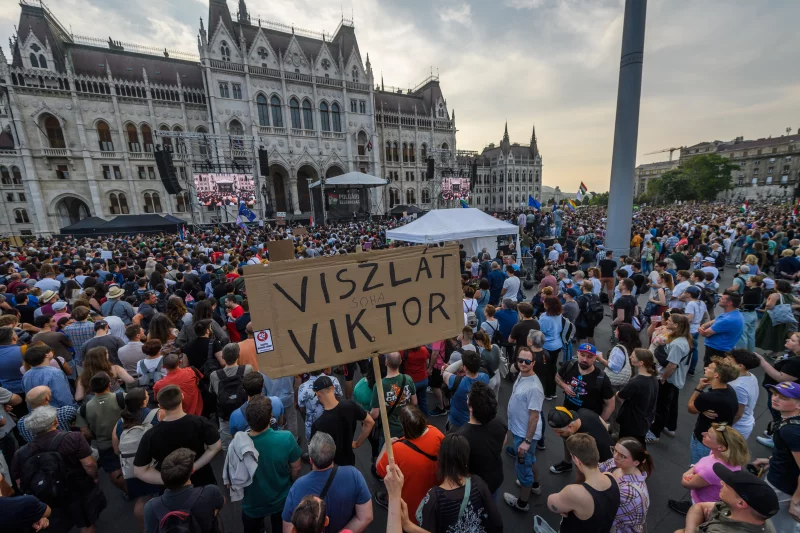Thousands of Hungarians took to the streets of Budapest on Tuesday to protest against the government of Prime Minister Viktor Orbán. The event, attended by about 15,000 people, was organized as a peaceful demonstration but carried a strong message of discontent. Protesters called the rally the start of a resistance movement aimed at defending democracy and civil freedoms in Hungary.
The protest was supported by well-known public figures, including writers, musicians, and journalists. They addressed the crowd with strong criticism of the government’s policies, accusing it of corruption and growing authoritarianism. Many participants expressed concern that the country is drifting away from democratic values.
Tensions have been building in Hungary since March, when the government passed a law that bans public LGBTQ+ events. This law also allows authorities to use facial recognition to identify and fine those who attend such gatherings. The government later passed a constitutional change that gives more power to the state and weakens public participation.
International observers have voiced alarm about Hungary’s direction under Orbán’s leadership. Some compare his tactics to those used in authoritarian states like Russia. His critics believe that these recent laws are designed to control the media, civil groups, and the opposition ahead of the 2026 national elections.
A draft bill, recently introduced by the government, has caused even more concern. If passed, it would give authorities the power to monitor and punish organizations they consider a threat to national sovereignty. This includes the ability to block their websites, cut their funding, and even shut them down completely. While the bill’s final vote has been delayed until autumn, it has already sparked strong opposition both at home and abroad.
Over 80 European news outlets signed a joint petition calling on Hungary to withdraw the bill. The European Union has also warned that the law could violate EU rules and values. Civil rights groups inside Hungary say the draft bill targets independent journalism and non-governmental organizations that speak out against government policies.
Many protesters said they fear the country’s remaining democratic spaces are under attack. They believe the current government is trying to eliminate any form of public disagreement. Analysts say the ruling party is facing growing pressure as the 2026 elections approach. Polls show rising support for a new opposition alliance, which could challenge Orbán’s long-time hold on power.
Tuesday’s protest was one of the largest in recent years. It showed the growing energy of the opposition and the public’s desire for change. While the government has not responded directly to the protest, organizers say more rallies will follow.
Hungary has faced criticism from the European Union before for weakening democratic standards. In past years, the EU has suspended funds and launched legal action in response to similar policies. The government usually rejects these moves, saying they are unjust attacks on Hungarian sovereignty.
The future of Hungary’s political direction remains uncertain, but Tuesday’s event was a clear signal. Citizens are beginning to organize and speak out more strongly. If current trends continue, the 2026 election may bring significant political changes.







